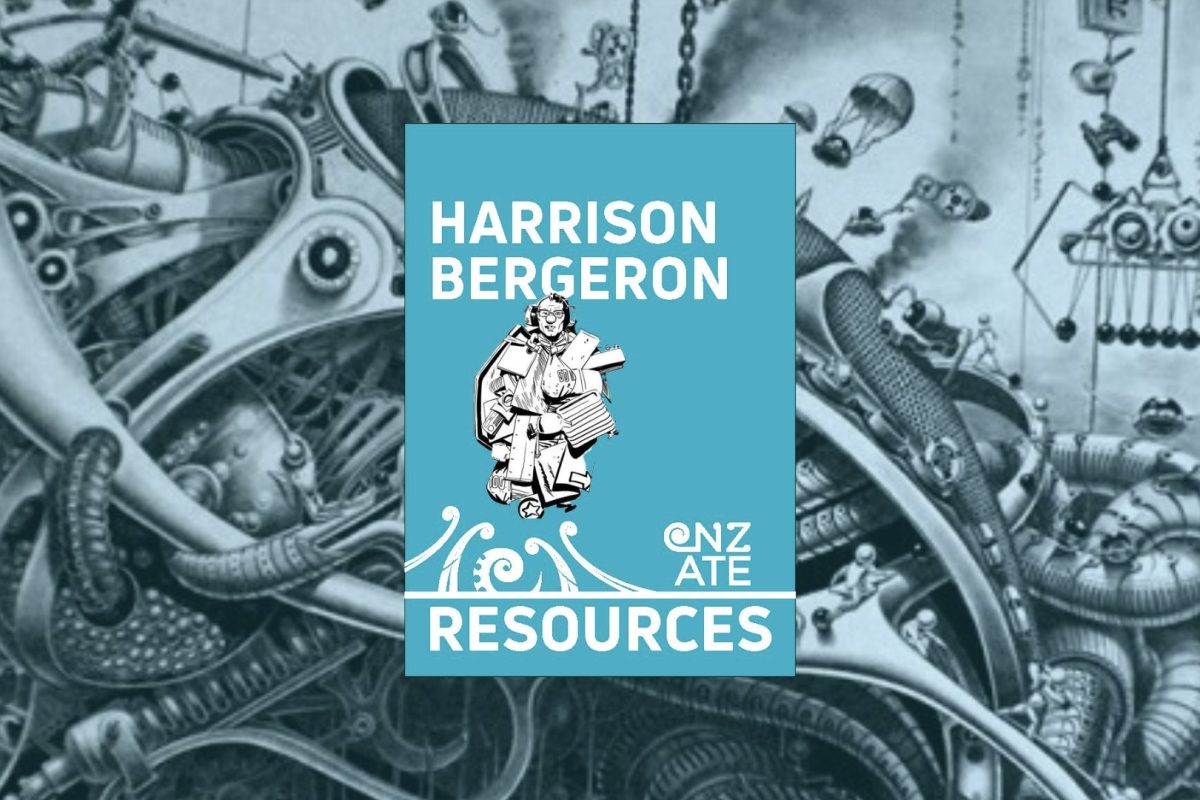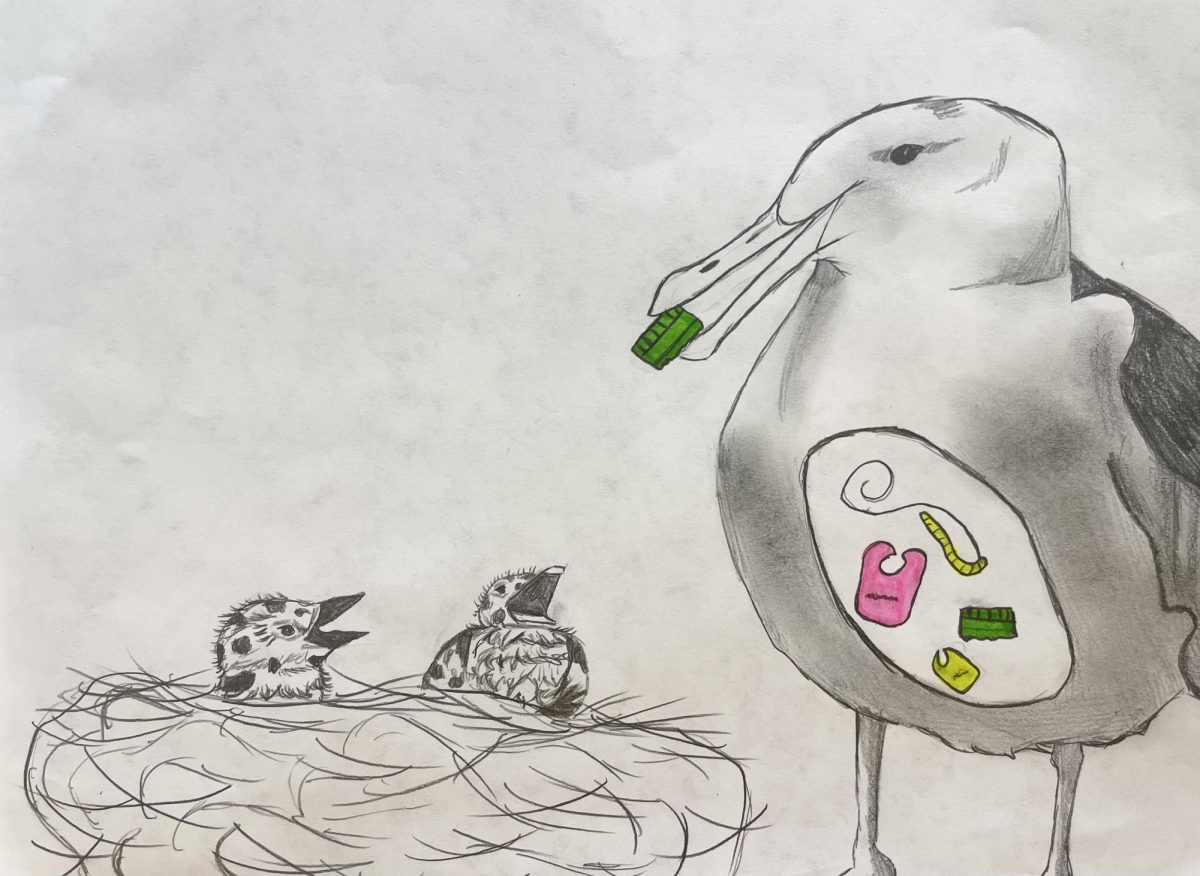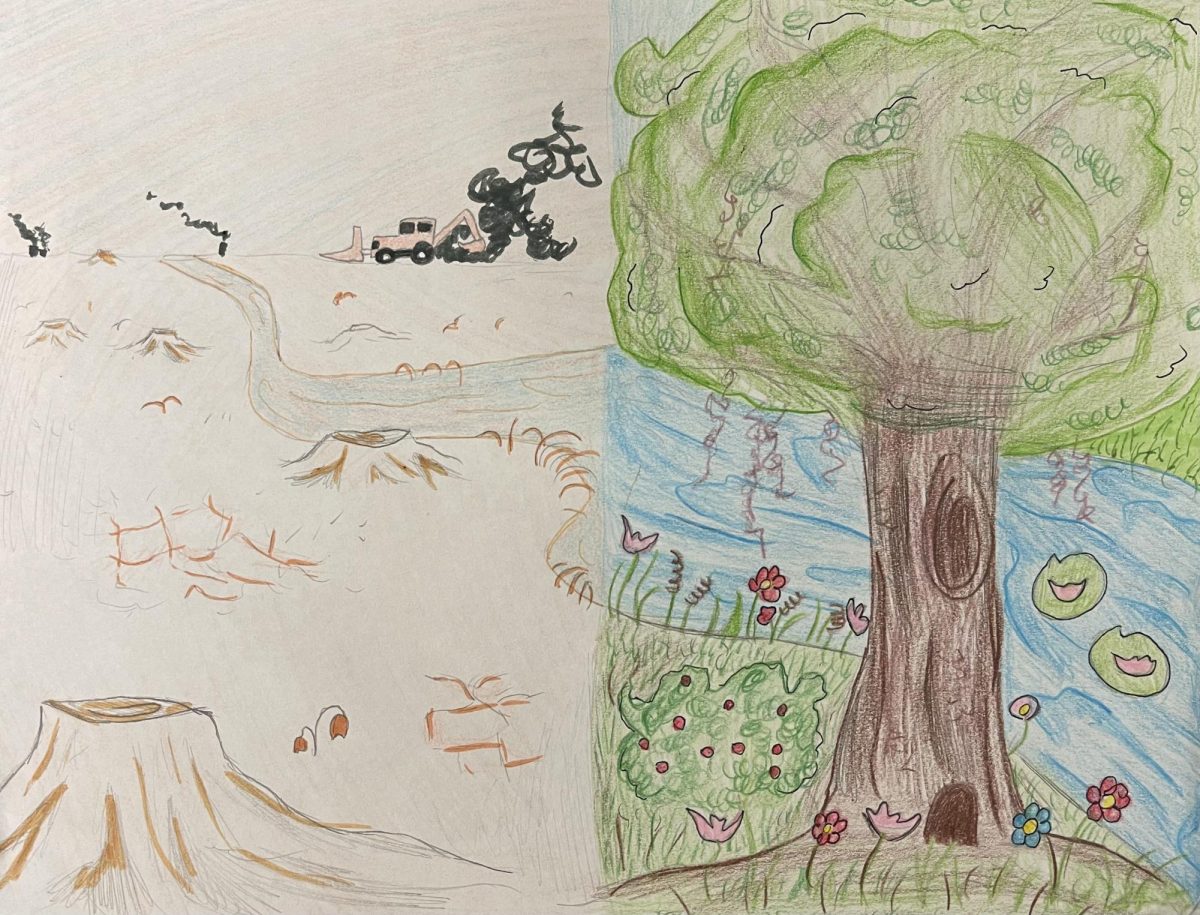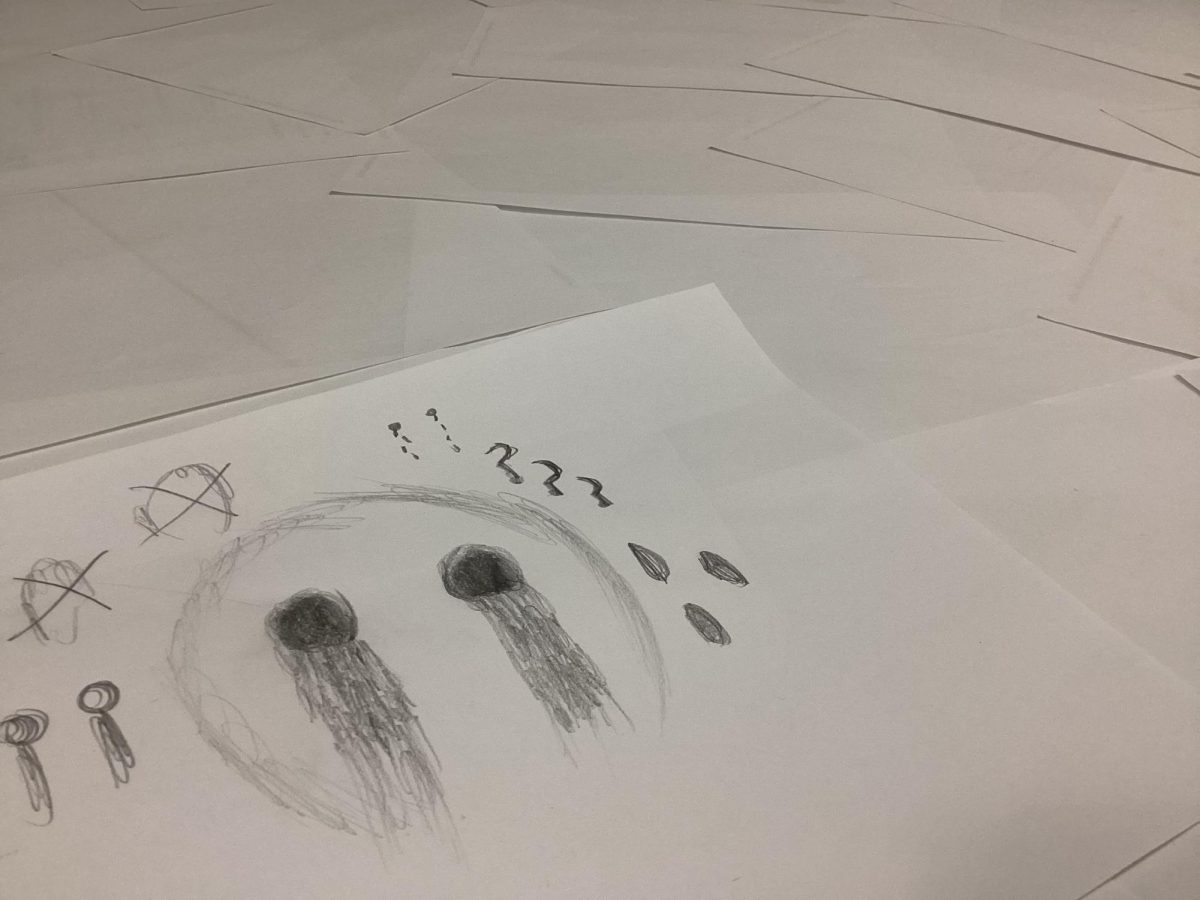The world would be a boring and bland place without individuality. This crucial sense of originality brings light into the world, giving us a sense of purpose, identity, and creating culture. In Kurt Vonnegut’s short story “Harrison Bergeron” everyone is forced to be equal, and subsequently stripped of their individuality. Vonnegut paints an intricate picture of what ensues when pursuing the ideal vision of equality without acknowledging the subsequent issues that come along with it. The story delves into a variety of complex themes, including individuality, oppression, ethics, and control. The themes are used to create a warning that serves to caution against following utopian ideals without considering the mass ethical implications it will have.
The enticing story of Harrison Bergeron follows the married couple, Hazel Bergeron and George Bergeron. Set in a dystopian future, this alternate universe is completely overseen by an oppressive government that’s main goal is total and complete equality. To carry out these ideals, the government enforces handicaps onto people to suppress their natural strengths and abilities. This distorted government believes that by limiting every person’s talent, they are ensuring that nobody is able to stand out, therefore making everyone equal. Hazel and George have average levels on intelligence, but their son, Harrison, has extraordinary levels of intelligence. Out of fear of his exceptional attributes, the government takes him away and leave the parents with no memory of the situation. While watching simple television one day, George and Hazel view a man suddenly emerge onto their screens. This man has escaped from the government, removed his handicaps, and is now declaring himself to be the Emperor. The supposed Emperor announces that he will overthrow the government, providing all viewers with a momentary sense of hope. Before this vigilante can pursue his objective, he is shot and killed by the Handicapper General. The avenger is revealed to be Harrison, and George and Hazel are left saddened, but this feeling is fleeting as their handicaps do not allow them to freely think and feel. The couple soon forget what has just taken place and quickly return to the average lives. Forcing readers to question what the true meaning of equality is, and how we can achieve it.
Society as we know it is left unrecognizable, as Vonnegut depicts the oppressive nature that society is prone to by showing the extreme measures that are willing to be taken in order to achieve what is considered as equality. In the story, the Handicapper General, Diana Moon Glampers, is described to be “a woman with a cinder-block face.” (Vonnegut 56). This ominous description of her appearance serves as a physical form of the oppressive government authority. The woman creates an atmosphere of fear and intimidation for the citizens, representing the faceless, cold, emotionless, and unstoppable power of the government that can be lurking around every corner. Subsequently evoking a sense of fear from the readers. The lengths to which their forces are unstoppable is soon realized by the unforgettable actions that ensue in the face of Harrison.
The theme of individuality is emphasized when Vonnegut introduces Harrison Bergeron to the narrative. He uses his exceptional physical characteristics and mental attributes to explain the importance of self identity. In one instance, Harrison boldly declares, “I am a greater ruler than any man who ever lived. Now watch me become what I can become!” (Vonnegut 57). Demonstrating Harrison’s yearning to express his unique self, refusing to be restrained by the society’s oppressive demands for conformity any longer. Vonnegut takes advantage of Harrison’s defiance to place a spotlight on the natural human desire for individuality and the need for freedom to express one’s true identity. However, this defiance and act of uniqueness is not tolerated and is quickly shut down when the General kills Harrison on behalf of the government. The government’s favorite way to implement ordinariness among its citizens is through handicaps.
The story’s portrayal of the handicapping process not only demonstrates the lack of individuality, but also the implications of the unyielding pursuit of equality without considering ethical consequences. Vonnegut describes the process in great intricacy by saying, “They were burdened with sashweights and bags of birdshot, and their faces were masked by metal masks, meant to hide any semblance of attractiveness.” (Vonnegut 56). The use of these handicaps on individuals raises questions of the moral implications. The extreme measures taken to enforce equality disregard the dignity and freedom of individuals, prompting for the reflection on the common ethical dilemma of sacrificing personal gains and freedoms in the name of what is considered to be an ideal or utopian society. Vonnegut challenges readers to consider the consequences of implementing seemingly justifiable measures that compromise essential human rights. Placing a spotlight on the notion of cautioning against seeking out a utopian society.
Vonnegut uses the concept of control to undermine the government’s authority over the pursuit of total equality in the pursuit of utopia. By describing how “It was tragic, all right. But George and Hazel couldn’t think about it very hard. Hazel had a perfectly average intelligence, which meant she couldn’t think about anything except in short bursts.” (Vonnegut 54). The author emphasizes the government’s desire to maintain control by committing wrongdoing. Deliberately limiting people’s intellectual capacities, preventing them from questioning the oppressive system which they are a part of. Vonnegut suggests that absolute control can lead to an overall void in critical thinking, leaving people vulnerable to manipulation as they are unable to challenge obviously questionable authority.
In Kurt Vonnegut’s “Harrison Bergeron” there are warnings against the dangers of extreme measures and the suppression of individuality in the pursuit of an equal society. The story serves as a cautionary tale about the potential consequences of sacrificing freedom and uniqueness for the sake of utopian ideals. Through the experiences of characters such as Harrison Bergeron, Diana Moon Glampers, and George and Hazel Bergeron, Vonnegut emphasizes the importance of preserving individuality, questioning oppressive systems, and upholding moral principles. The story encourages readers to examine the consequences of implementing extreme measures in the name of equality and the potential dangers of blindly pursuing the ideas which may seem innocent, such as equality, without considering the possible consequences involved. “Harrison Bergeron” remains to be a powerful reminder of the fragile balance between progress within society and preserving fundamental human values.








